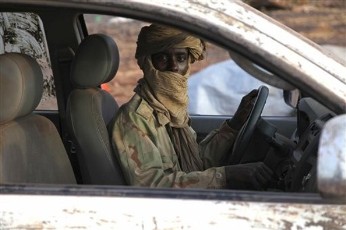South Sudan’s Unity state denies hosting Sudanese rebels
By Bonifacio Taban Kuich
April 11, 2013 (BENTIU) – Authorities in South Sudan’s Unity state have denied that Sudanese rebel group, the Justice and Equality Movement (JEM), have any presence in their territory.

“It appears that, in 2012, the Justice and Equality Movement (JEM) operated a large base for around 800 armed fighters inside South Sudan at a location near Bentiu, Unity State”, the experts said, while citing other base in Western Bahr el-Ghazal State.
JEM spokesperson, Gibreel Adam Bilal, responded by saying it “is simply not good enough for a Report of this magnitude and the term “appears” is not sufficiently definitive to elevate the claim to a fact status.”
Unity state’s deputy governor Michael Chiengjiek Geay told Sudan Tribune on Thursday that his government has never hosted a single rebel from neighboring Sudan.
But he went on to say: “JEM are not longer in our territories to be very honest I would challenge those who are alleging that to come themselves and verify of whether they will get them or not. But I’m sure if they come down today they will find nothing.”
The UN panel of independent experts was established in 2005 after the peace agreement that led to South Sudan’s independence, to monitor an arms embargo.
The deputy governor admitted that during the fighting between the Sudan Armed Forces (SAF) and South Sudan’s army (SPLA) in April last year, over the disputed oil-producing Heglig/Panthou region, the South’s forces did become mixed up with JEM forces. However he maintained that there has been no formal cooperation between the two.
“We have never hosted them, but during [the Heglig] operation it happened that we have seen them also conducting the operation together with our forces so that was a different situation when people are fighting you need not to know who are the fighters and who are fighting alongside this. All in all our main objectives is to defend our territories and achieve that by fighting hard and pushing back the enemies”.
JEM began its rebellion against the Sudanese government in Darfur over 10 years ago complaining that the region had been marginalised by Khartoum. In 2011 JEM and the two other main Darfur rebel groups formed a coalition – the Sudan Revolutionary Front (SRF) – with the former northern sector of the SPLA after conflict erupted in South Kordofan and Blue Nile either side of South Sudan’s independence in July 2011.
Khartoum has repeatedly accused the SPLA of supporting their former colleagues in the SPLA-N and the SRF coalition, although this has been denied by Juba. South Sudan conversely accuses Sudan of backing rebel groups within its own territory.
Such distrust over border security has defined relations between the two nations since their divorce but diplomatic ties are improving with Sudan’s president due to arrive in Juba on Friday to discuss further implementation of Cooperation Agreement signed last year.
Geay urged both countries move forward as per last months matrix agreement in Ethiopia to focus on peace building and normalising relations.
Both countries have faced economic hardship following the South’s decision to halt oil production over a transit fee dispute last year. Exports of South Sudanese crude through Sudan recommenced earlier this week .
(ST)
